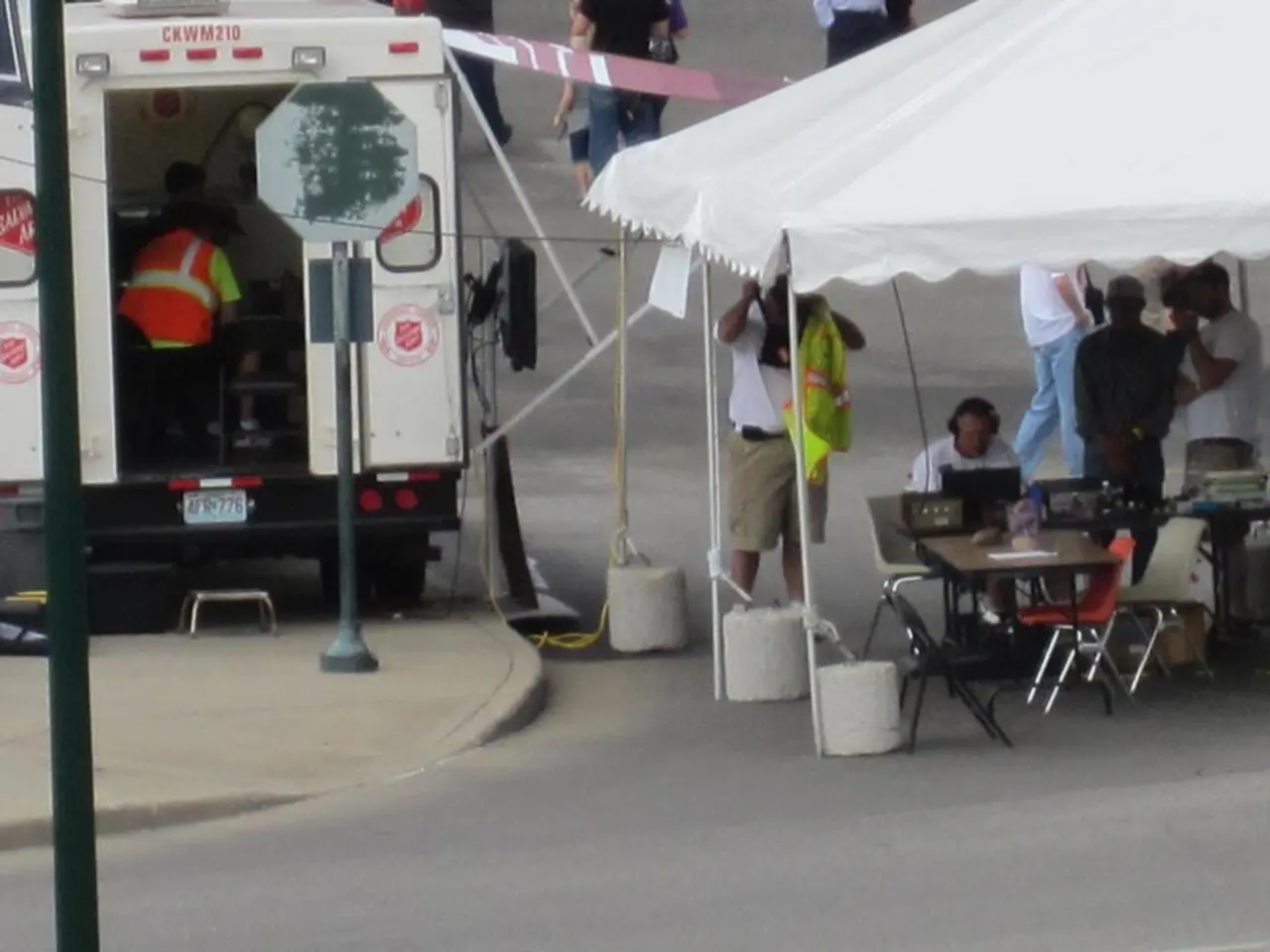Aid transportation to Gaza resumes by German aircraft once more
Germany Airlifts Aid to Gaza as Crisis Deepens
In the face of a deepening humanitarian crisis in the Gaza Strip, Germany has stepped up its efforts to provide relief to the civilian population. Two flights carrying a total of 34 pallets, each containing approximately 14 tons of food and medical aid supplies, were successfully dropped over Gaza on August 1, 2021.
The relief operation, a joint action between the Ministry of Defense and the Federal Foreign Office, comes as the situation in Gaza remains critical. Over 60,000 deaths have occurred in Gaza since May 2025 amid forced displacement of more than 90% of the population amid conflict. At least 1,516 fatalities and more than 10,000 injuries have resulted from attacks on civilians attempting to access food distribution sites and aid convoys.
Defense Minister Boris Pistorius underscored the critical nature of the situation in Gaza, stating, "For many people in Gaza, including children, it's a matter of sheer survival." He did not indicate any specific children in need of aid.
Friedrich Merz, the Chancellor of Germany, also stated that Germany continues to work intensively to enable aid via land routes. He highlighted that airdrops are only a small contribution to alleviating the suffering of the people in Gaza. He did not specify the date of his statement.
The current humanitarian situation in the Gaza Strip is dire, with mass starvation, malnutrition, displacement, and escalating casualties among civilians seeking aid. The Israeli government, international organizations, and humanitarian actors including the UN are heavily involved, but aid delivery faces severe impediments and violent risks.
Food availability has sharply declined, with prepared meals falling by 74% since April 2025, despite shipments of food through crossings like Zikim and Kerem Shalom. Much aid is looted or offloaded by desperate crowds at highly militarized checkpoints. Humanitarian missions remain delayed and obstructed by Israel, with many requests to move aid or personnel denied or hindered, even as temperatures soar and malnutrition deaths rise, especially among children.
The Gaza Strip is largely under Israeli-militarized zones or displacement orders, restricting access for aid. The blockade and conditional approvals by Israel continue to threaten NGO operations: new registration measures risk banning key international organizations just when the humanitarian crisis worsens.
The UN and humanitarian partners aim to scale up aid deliveries and reestablish community kitchens to increase food availability, but success depends on improved access and security guarantees. The international community, including Germany and EU partners, urges Israel to remove bureaucratic and military barriers to humanitarian operations and allow unrestricted NGO presence to prevent famine and further civilian deaths.
UN agencies prepare for contingencies including intensified operations for fuel supply and medical aid while continuing to appeal for ceasefire and protection of civilians during potential Israeli ground offensives especially in Gaza City. The future hinges on political and military decisions enabling safe, impartial aid delivery and restoration of UN-coordinated operations. The situation remains fluid and extremely fragile.
Boris Pistorius also called on Israel to ensure comprehensive access for humanitarian aid. He did not mention any changes in the total weight or number of pallets carried. The article does not provide any new information about the joint action between the Ministry of Defense and the Federal Foreign Office of Germany, nor does it mention any new types of aid supplies other than food and medical aid.
- The relief operation in Gaza, initiated by Germany's Ministry of Defense and Federal Foreign Office, is part of a broader effort aimed at addressing war-and-conflicts and general-news related crises worldwide.
- Amid the critical situation in Gaza, Germany's Chancellor, Friedrich Merz, emphasized the importance of political engagement to ensure sustainable solutions, beyond temporary airdrops of food and medical aid supplies.








